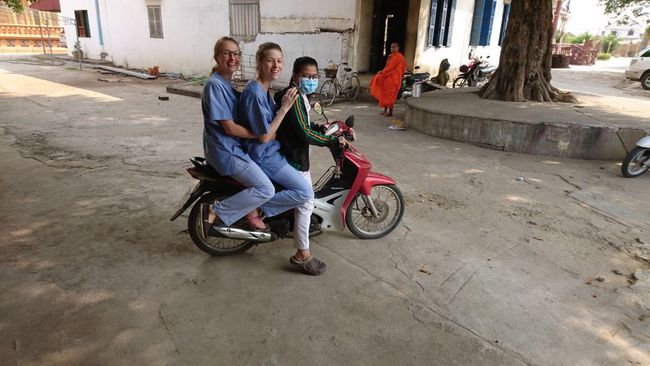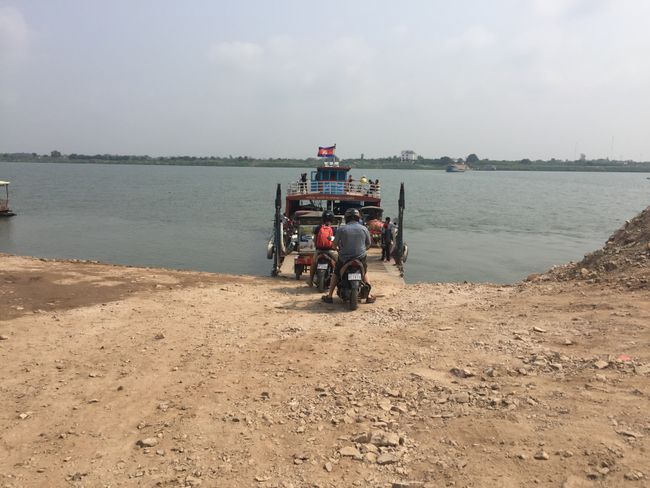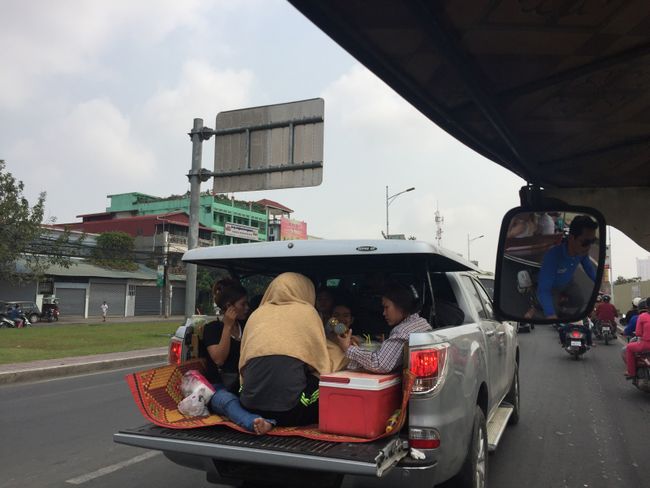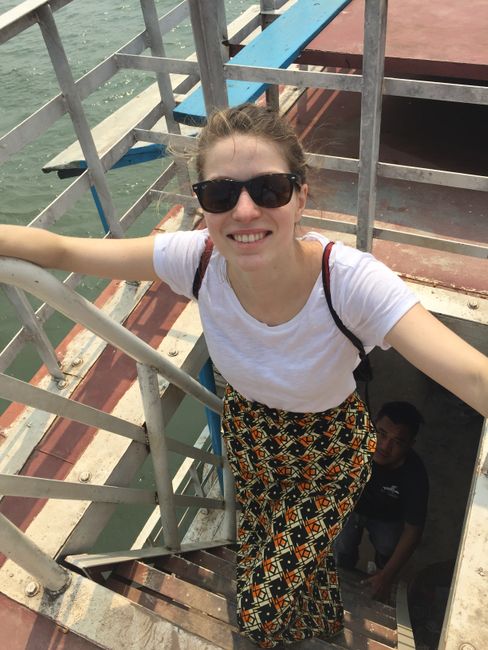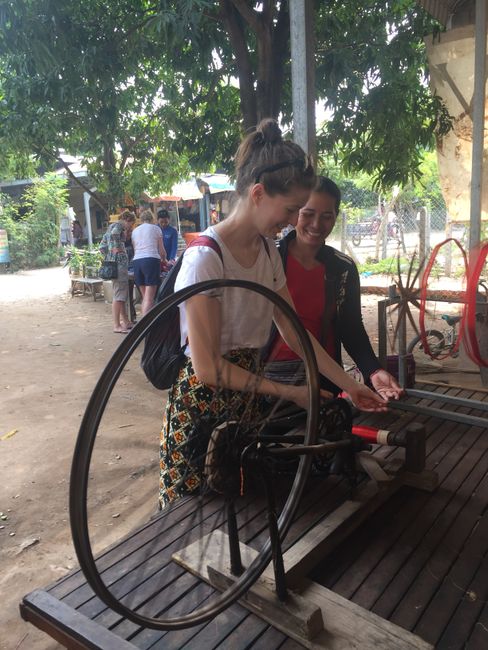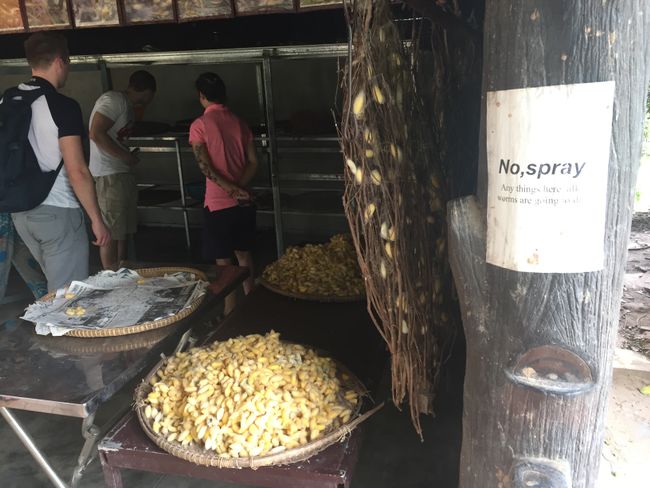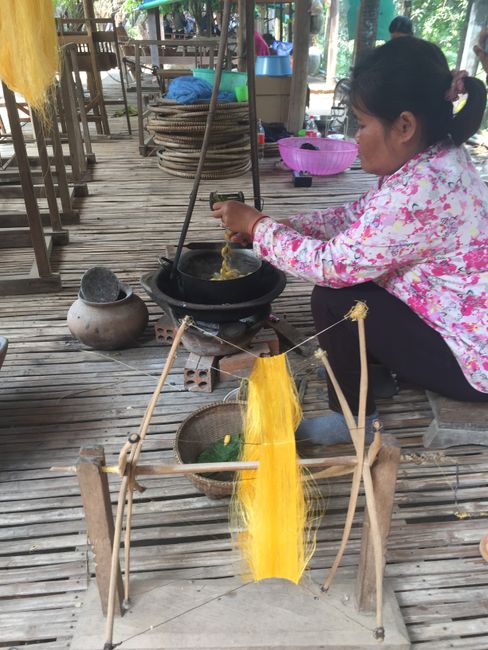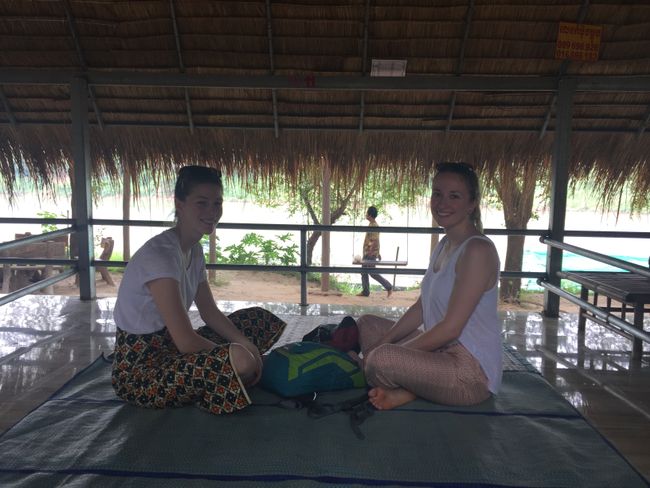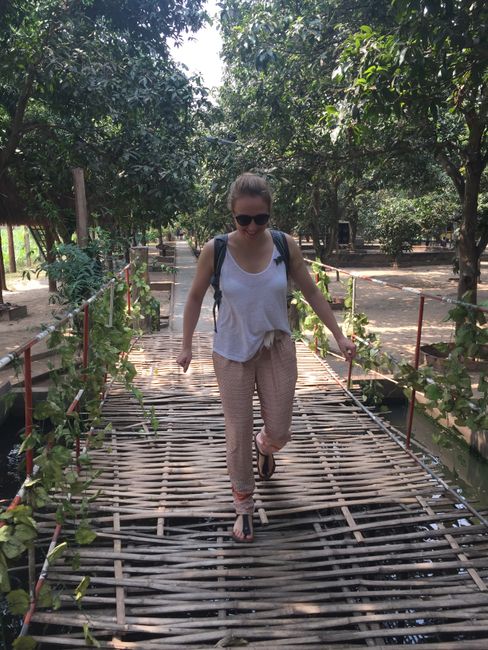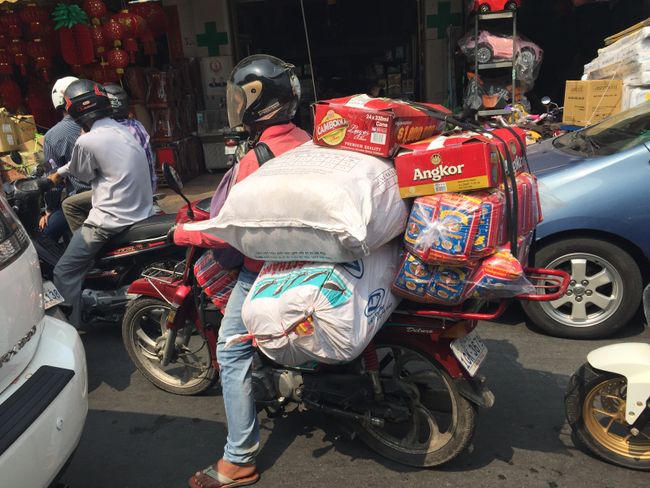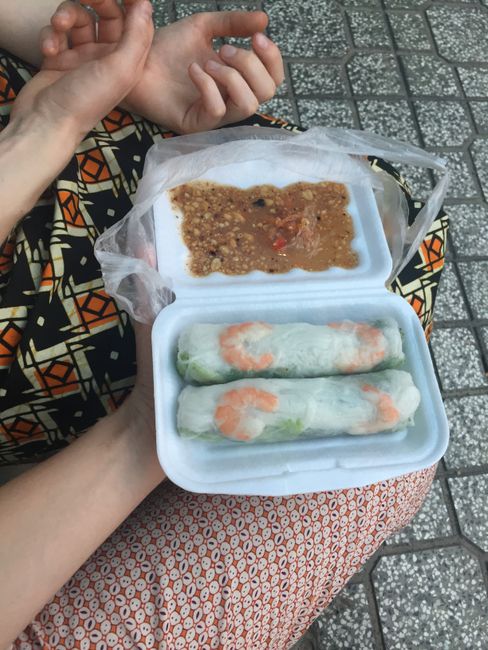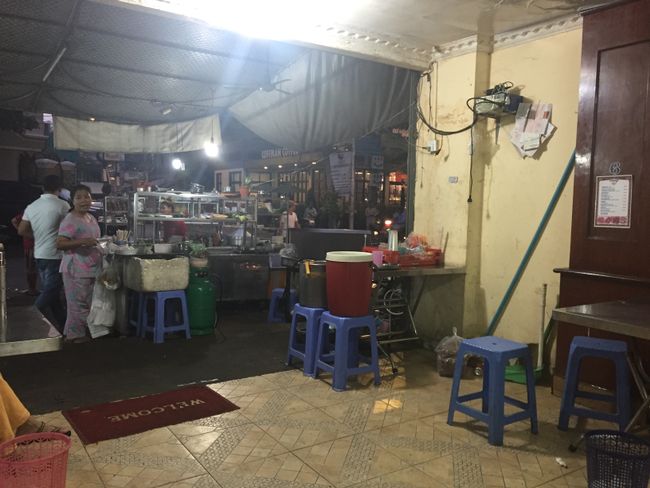Koh Dach
Pubblicato: 11.02.2018
Iscriviti alla Newsletter
At 10 o'clock we get into the tuk-tuk, which takes us over the Japanese Bridge (Tonle Sap crossing) to the ferry. A ferry crosses the Mekong to the so-called "Silk Island" every 15 minutes. Everything that has space is allowed to come along - including our tuk-tuk. Once we arrive there, we are directly dropped off at the first small silk weaving factory (probably the cousin of the tuk-tuk driver). Amy introduces herself to us and shows us the weaving factory while casually complimenting us. We suspect that this is her elaborate sales strategy, because soon she leads us to a table full of silk scarves and tablecloths. We don't buy anything and Amy is a little offended. We continue to the silk farm for a $1 entrance fee. We learn about the steps from the silk worm to the scarf. Nothing is wasted here, as even the worm or the almost finished butterfly is eaten in the end. Take home message: the natural color of silk is yellow, 10-20% of the silk (outer cocoon layer) is more rigid and used for tablecloths, 80-90% comes from the inner cocoon layer and is very fine for scarves, etc. Depending on the complexity of the pattern, weaving one meter of scarf takes 1-4 days. Girls learn the craft from their mother from the age of about 14 and pass on the knowledge to their daughters, while the men work the land. A nice tourist day :-)
For dinner, we tried street food. We still need some practice in recognizing what the delicacies offered on the side of the road are made of.
We spend the rest of the evening learning Khmer vocabulary, which will hopefully make our work at the clinic easier.
My name is = khgnom tschmuah
What's your name? = neak dschmo ey?
Tooth = thmign
Tongue = åndat
Head = kbal
Pain = tschū
Pull a tooth = dåk thmegn
Give an injection = djak thnam
Iscriviti alla Newsletter
Risposta

